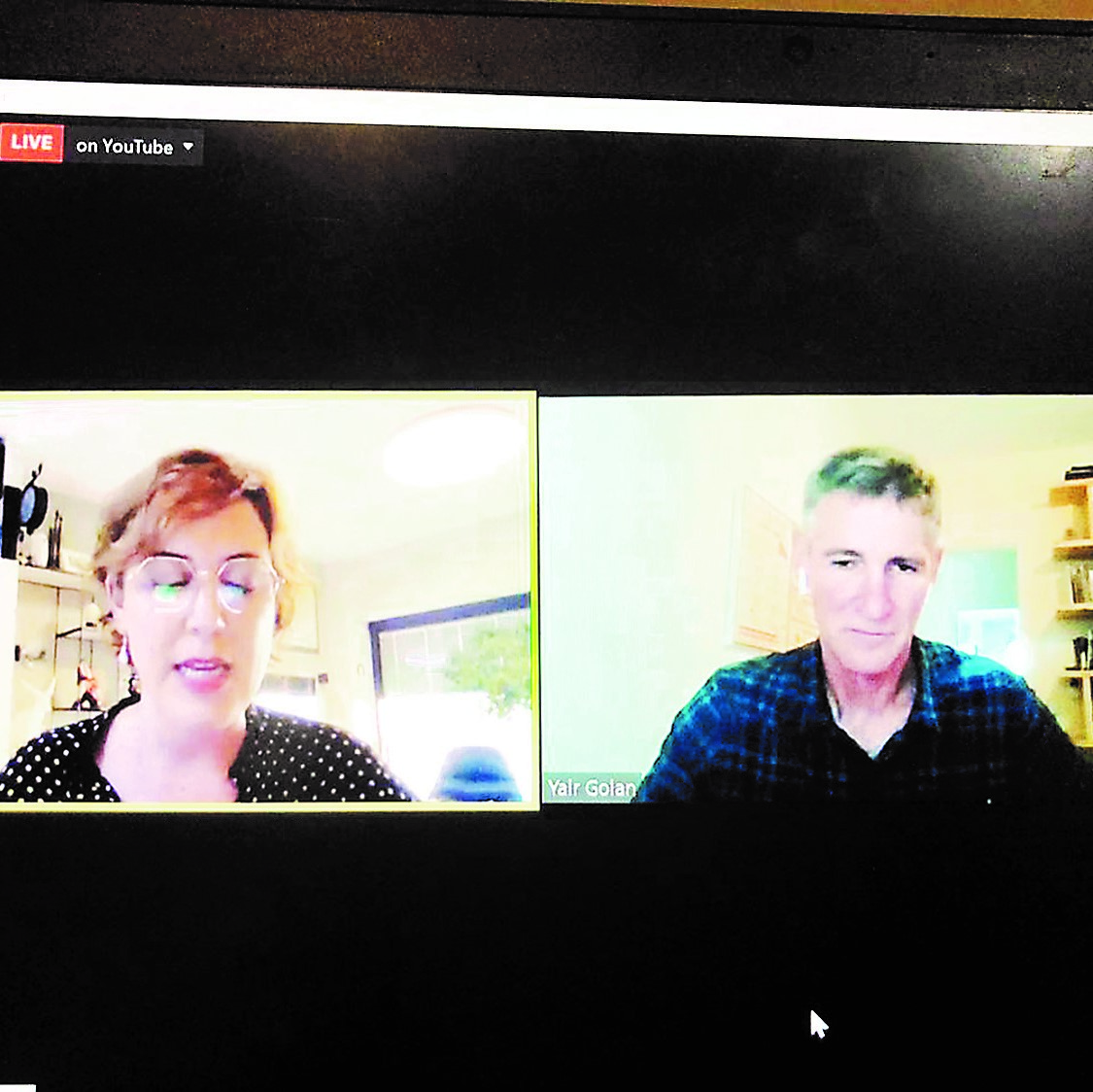click to dowload our latest edition
CLICK HERE TO SUBSCRIBE TO OUR NEWSLETTER


Published
4 years agoon
By
adminSTEVEN GRUZD
So said Major General Yair Golan, a former deputy chief of staff of the Israeli Defense Forces and member of Knesset for the Meretz Party. His views were the polar opposite of those of Nir Barkat, a Likud member of Knesset, and the former mayor of Jerusalem, who denied any comparisons with apartheid South Africa.
Both were part of a Sunday night Zoom webinar on the impending annexation, co-hosted by the SA Jewish Report, the South African Zionist Federation, and the Israel Centre.
Moderated by journalist Paula Slier, the scene was set by educationalist Noam Weissman. He noted that the terms people employ signal where they stand. For example, is this characterised as an “Israeli-Arab” conflict, an “Israeli-Palestinian” one, or between “Israel and Palestine”?
Are the eastern lands captured in the 1967 Six-Day War referred to as the “West Bank”, “Judea and Samaria”, “occupied territories”, or “disputed territories”? Is Prime Minister Benjamin Netanyahu proposing “annexation” (incorporating land belonging to another country) or the “extension of sovereignty”, or “extending the application of Israeli civilian law” to Jewish settlements across the Green Line (demarcating the pre-1967 boundary)?
Slier remarked that the debate has so far lacked specifics about what, exactly, might change, and has been overshadowed by a resurgence of COVID-19 in Israel.
Golan staunchly opposed annexation. “Why now?” he asked. “If you annex Judea and Samaria, you could bring in three million more Palestinians. It’s crazy. We shouldn’t take this risk. There’s no reason to do it. The problem isn’t the land; it’s the people.
“The diaspora [and many in Israel] can’t identify with a state suppressing a population of Palestinians forever. This is totally unacceptable.”
In 1967, the main threat to Israel came from a united front of Syria, Jordan, and Iraq from the east,” Golan said. “This is not the situation today. There is no threat from Syria for the next 10 years. There is no need to annex the Jordan Valley.”
Asked whether there was a rush to annex based on a calculation that United States President Donald Trump might not be re-elected in November, Golan said, “We should wait and see who the next president is. It’s not wise to risk it on the first of July. The next US administration could be against annexation. But the US isn’t the main consideration; it’s about the security and economics of Israel.”
When asked how the Arab world might react, Golan said, “Relations with Jordan and Egypt are tense. Why bring in more tension? We have very important peace agreements with both, which we must support in any manner. [Annexation] won’t improve the relationship, or with Saudi Arabia or the Gulf States, moderate Sunni states. Our main common threat is Iran.”
Palestinian leaders have turned down many opportunities to accept a state in the past, “so to put all the blame on the settlements is wrong. But I do support separation from the Palestinians,” said Golan.
Likud’s Nir Barkat, provided a very different voice.
“We need to look at the wider context,” Barkat said. “We have three objectives. One, civil separation with full civil rights. Two, the Palestinians will never have an army. And three, development of a joint economy.
“This is about applying Israeli law to the settlements, who are now under military law. We will not evict any Jews [or Palestinians] from their homes.” He stressed Jewish ties to the land from biblical times.
“We must take care of Israeli interests. There are 430 000 Jews in Judea and Samaria. Unfortunately, we have no partner for peace, and this unilateral step is the right thing to do.
“We have no interest in expanding sovereignty to many Palestinian villages, towns, and cities. Even if we did, they would have full civil rights [except citizenship]. We don’t want to annex Arabs. Civil separation is well accepted.
“I have done a lot of work on developing a joint economy,” Barkat said, describing proposed industrial parks, support for labour-intensive technology companies, and the development of new biblical history sites.
“I agree with the settlers. A Palestinian state isn’t the right thing to do. We have been stuck for years with zero progress, we need to move. We are here to stay, and need to talk about a better economy as the first step to real peace.”
When asked what lessons were learnt from Israel’s 2005 unilateral exit from Gaza, Barkat said, “We will never, ever withdraw again. A power vacuum was filled with terror, and that’s the last thing we would like. But we must take steps with courage, not in fear of terror and war.”
Opinion polls taken at the start and end of the webinar showed that the audience was evenly split. By the end, there were fewer “don’t knows”, and more support for both sides. It indicated that the politicians had convinced some fence-sitters, and increased awareness of what’s at stake.

Basil Dubb
Jul 2, 2020 at 4:02 pm
‘Fact Check: Poll from the webinar
Do you support the Israeli annexation/extension of sovereignty over parts of the West Bank and Jordan Valley?
Support Yes 40%
Do not support No 52%
Don’t Know 8%
You write "audience evenly split"
On what metric do you base this assesment?
Certainly not your own poll’